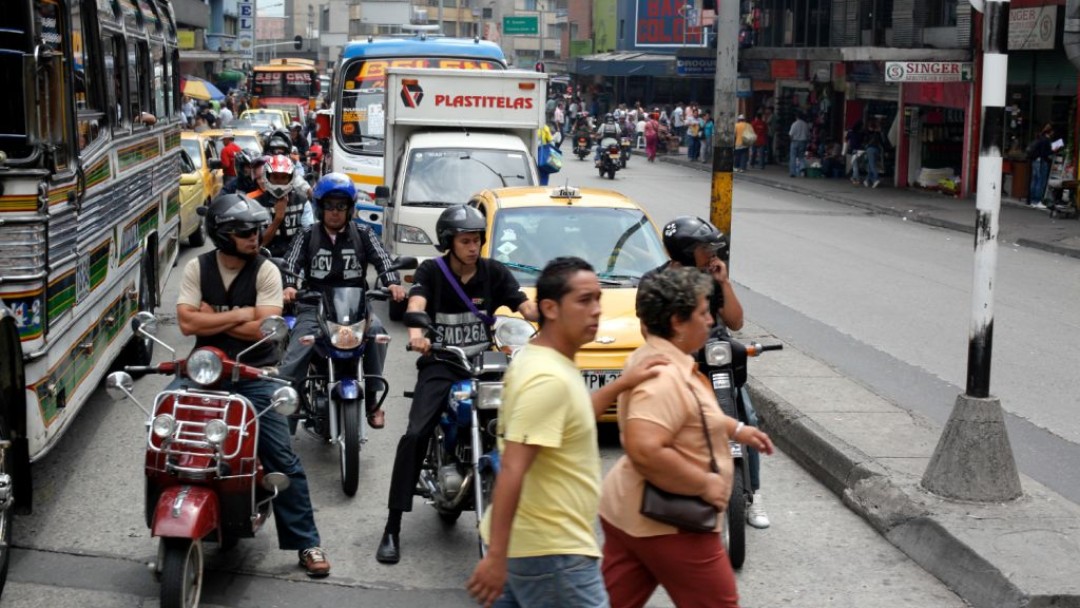News from 2016-10-18 / KfW Development Bank
Habitat: promoting urban mobility
KfW is providing one billion euros for environmentally friendly public transport
Germany has presented its contribution to sustainable urban development on the very first day of the Habitat III Conference in Quito. The initiative in question is aimed at promoting urban mobility around the world. On behalf of the German Federal Government, KfW is providing around one billion euros for this purpose in 2017 alone. The money will be used to finance trams, rapid transit systems and ferries, among other things.
"Cities are crucial for the solutions of the future," said UN Secretary-General Ban Ki-moon at the opening of the third United Nations Conference on Housing and Sustainable Urban Development in Quito, Ecuador. "They have a huge part to play in achieving an end to poverty." The Habitat Conference, which is held every 20 years, is a forum for discussing the future of housing and our cities. We are already in a situation where the majority of the world's population lives in cities. They will be joined by another 2.5 billion people by the year 2050, a historically unparalleled process. In order to ensure that cities grow in a way that is environmentally and socially sustainable, energy-efficient buildings are needed and transport systems must be structured so as to avoid daily gridlock and make transportation affordable.
"Habitat III is a critical moment for making urban development sustainable," stressed Joan Clos, Executive Director of the UN Habitat Human Settlements Programme. At the end of the four-day conference, the member states intend to ratify a new agenda for sustainable urban development. The aim of this "New Urban Agenda" is to serve as a guideline for the cities of the world for the next 20 years. "It represents a vision of the future in which everyone has access to the benefits of urbanisation."
On the first day of the conference, Tanja Rödiger-Vorwerk, Deputy Director General at the German Federal Ministry for Economic Cooperation and Development (BMZ), gave a presentation on a German contribution to the implementation of the New Urban Agenda: a "Transformative Urban Mobility Initiative" (TUMI), the main aim of which is to promote sustainable public transport in the growing cities of developing countries and emerging economies. KfW is planning to provide financing of around EUR 1 billion in 2017 alone.
Tram systems, suburban and underground railways, ferries, pedestrian and cycling paths, cable cars, traffic management systems, measures aimed at road safety and reducing traffic, and connections between urban and rural areas could all be financed as part of the TUMI. The planned commitments for 2017 are to provide improved transportation services for more than 250,000 people and reduce CO2 emissions by the equivalent of up to 2.5 million tonnes. KfW also expects the initiative to reduce the number of road traffic accidents and levels of particulate pollution.
KfW Director Marc Engelhardt described the TUMI as an important component of a global transport revolution. "In Quito, the international community wants to lay the groundwork for guiding urbanisation in a sustainable direction. At KfW we want to make a tangible contribution to this together with our local partners. We can make use of our many years of experience in the process, but we also want to break new ground."
KfW has already noticeably increased its activities in the field of sustainable urban development. More than half of KfW's promotional funds already go to urban projects, for example inclusive housing construction projects and energy-efficient buildings, public transport, urban adaptation to climate change or the provision of a water supply, waste water disposal, waste disposal or power grids. Given the significant investments that will be required by cities during the next few years (due in particular to demographic trends), KfW will continue to increase its activities in this respect, including as part of the TUMI.


Share page
To share the content of this page with your network, click on one of the icons below.
Note on data protection: When you share content, your personal data is transferred to the selected network.
Data protection
Alternatively, you can also copy the short link: https://www.kfw-entwicklungsbank.de/s/enzBWrMC.BdBA
Copy link Link copied